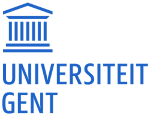UGent Metals tackles material challenges in marine environment
UGent-Metals is a Ghent University business development center supported by the Industrial Research Fund (IOF). It provides an access point to know-how and technology related to metal research and development with activities ranging from fundamental material research to application-driven design of large structures. Particular focus is set on developing new generations of metal alloys, processing techniques and products, together with advanced characterization tools to make safe and durable designs in challenging conditions. Particularly harsh conditions are imposed by a marine environment. Therefore, monitoring machines and constructions exposed to a marine environment with the aim to prevent damage and ensure their security and integrity, requires a truly multidisciplinary approach. To this end, UGent Metals combines various research disciplines from the faculty of Engineering and Architecture, encompassing fracture mechanics, tribology, fatigue, dynamics of constructions and vibrations, mechanical construction and production, non-destructive testing, advanced joining technology and metallurgy.
In a marine environment, a particular challenge lies in understanding material behavior under combined durability conditions, being the combination of abrasion, corrosion and fatigue. To steer innovations in offshore applications, encompassing wind energy, ocean energy, dredging, deep sea mining and ship building, UGent Metals relies on a unique testing infrastructure ranging from the kN to MN force range, and including advanced instrumentation, complemented with in house developed numerical simulation tools. The possibilities include:
- Testing the tribological response (friction, friction stability, wear and wear rate) of advanced materials in dry or marginally lubricated conditions.
- Computational tribology through numerical analysis via multi-scale and multi-physics models including the simulation of fluid- and particle-related tribological issues. Both lubrication modelling (e.g. elasto-hydrodynamic lubrication, smart fluids) and erosion-abrasion modelling (e.g. cavitation, droplet and solid-particle erosion) can be performed.
- Experimental and computational R&D on a variety of elastic-plastic fracture phenomena of metals and welded structures and components.
- Testing and modelling of corrosive environments
Next to the available infrastructure, the consortium also aims at designing and building new test rigs that meet the requirements for new projects, with emphasis on mimicking realistic conditions.
In view of the European Green Deal, UGent Metals keeps on investing in its expertise and infrastructure related to energy transition, sustainability, efficient use of resources and intelligent design of constructions. Currently, the consortium is building up a broad portfolio in this field, largely based on publicly funded projects within Flanders, Belgium or on the European level. Hereby the research teams develop technology related to:
- Lifetime prediction and extension of offshore wind structures, cables and foundations and for predicting bearing failures in offshore wind turbines.
- Reliability engineering: gearbox lubrication and damage monitoring
- Corrosion monitoring
- Accelerate fatigue-corrosion tests of welded structures and steel-composite joints for maritime applications
- Design and material selection of the casing for deep sea mining devices
Through various partnerships, UGent Metals aims at bringing the developed technologies to the market and to further grow in the field of metals R&D in a marine environment.
Are you interested in our research and infrastructure? Feel free to contact the Metals business developer Kristof De Wispelaere (Kristof.DeWispelaere@UGent.be).
